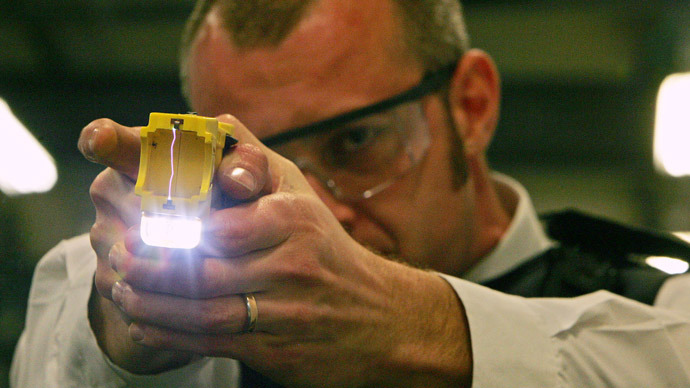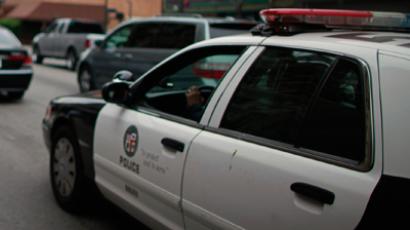British police to use more Tasers amid concerns over stun gun risks – inquiry

Plans to provide London officers with over 50 percent more Tasers have raised concerns over police methods, as fears grow around the unnecessary use of stun guns, an inquiry revealed. A 66-percent increase in Taser use had already been reported.
The number of officers issued stun guns in London’s Metropolitan police (Met) will increase from 800 to almost 1,300, opening up a debate in the force over 'mission creep' risks of using Tasers for minor violations, the Guardian reported. The plan will see 40 officers per borough issued Tasers, according to an inquiry by the London Assembly, an elected body that monitors the activities of London’s mayor.
The decision will put the Met on an equal playing field with other police forces in the UK that already have an increased number of stun guns in their units. The UK’s Sussex police force announced that it will be extending its use of Tasers and is currently training more officers, while West Yorkshire police have been noted for their extensive use of Tasers in the past two years.
The actual firing of stun guns in the UK has also been on a rise: Tasers were discharged 1,371 times in the year ending March 2011, a 66 percent increase over the previous year, according to freedom of information requests obtained by the Guardian.
Tasers are electroshock weapons, usually shaped like pistols, that disrupt voluntary control of muscles by jolting the victim with 50,000 volts of electricity.
When Tasers were first introduced in the UK, only officers with firearms training were permitted to carry them; now, an officer simply only needs to pass a three-day training course to be armed with one.
These changes have prompted concerns over how Tasers are being used. Met data revealed that half of those Tasered last year were black. Also, the number of people Tasered between 2008 and 2011 with emotional and mental health problems increased from 20 percent to 30 percent.
The rate of youths being Tasered has risen as well: Between 2008 and 2011, 61 percent of those Tasered were under 30.
There are concerns in the Met that the Taser might “become a compliance tool,” the Guardian quoted deputy chief constable Simon Chesterman as telling the assembly. Chesterman explained that these types of weapons had been used to enforce submission in the past, including forcing a person out of a car or getting consent to have fingerprints taken.
The Met had previously tried to limit police use of Tasers, but the London mayor’s office insisted on the expansion, saying that the devices could protect officers. Amnesty International has argued Tasers are potentially lethal, and that stricter rules should govern their use.
Amnesty also criticized the plan to increase the issuance of Tasers, and said that it might negatively impact policing methods in the UK, as the stun guns are portable, easy to use and could cause “severe pain at the push of a button, often without leaving marks.”
There is also evidence linking being hit by a Taser to long-term health issues like heart failure.
A study published by the journal Circulation has connected Tasers to irregular heart rhythms, which at times lead to cardiac arrest. It analyzed eight cases of people who were Tasered and went into cardiac arrest, opening up a wider debate around the safety of the electric stun gun. Seven of the people in the study died, and one survived.














